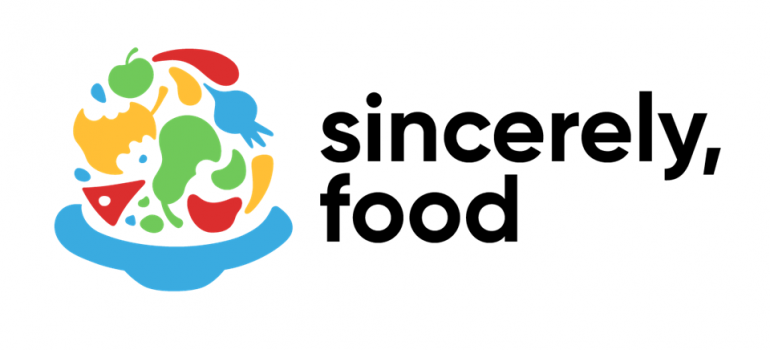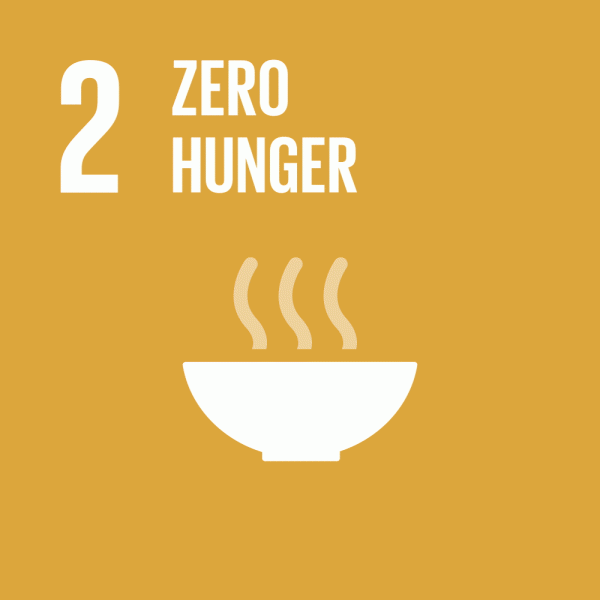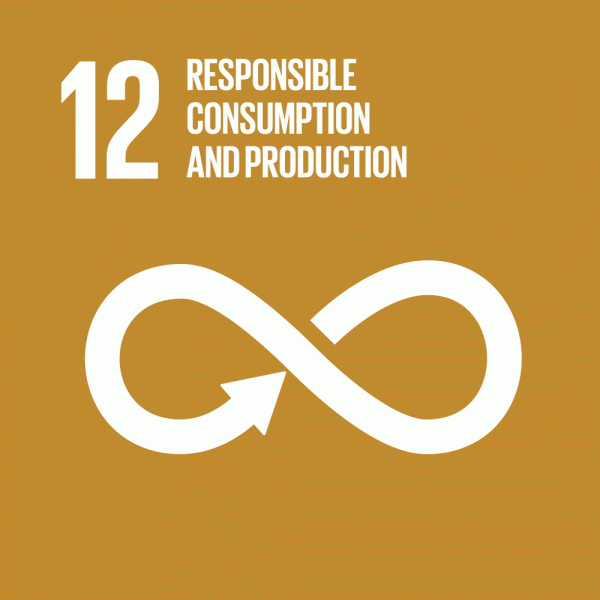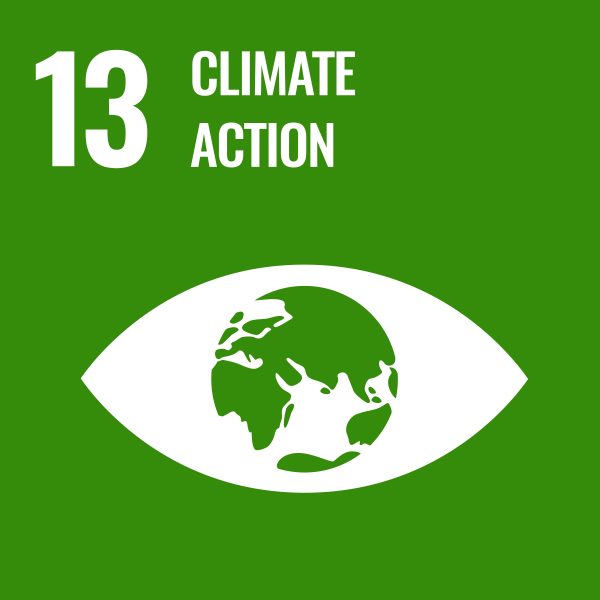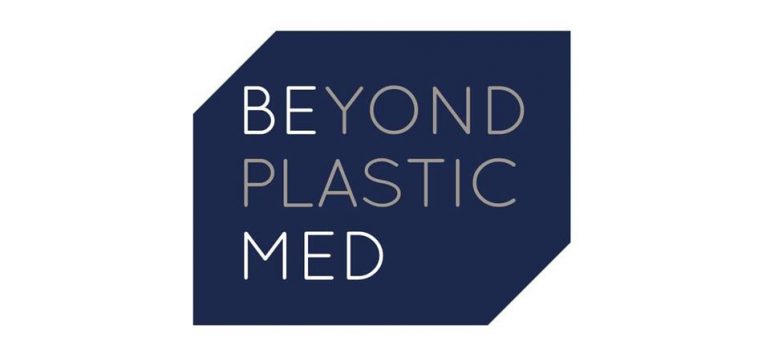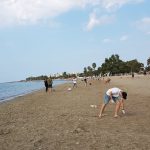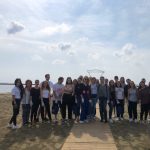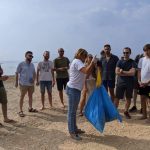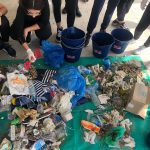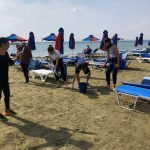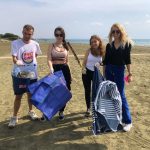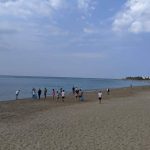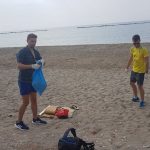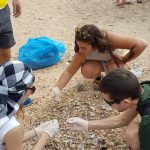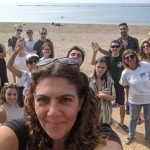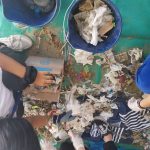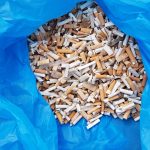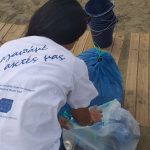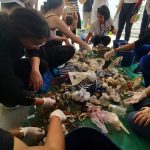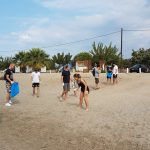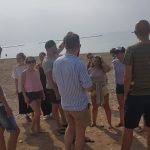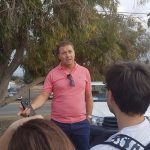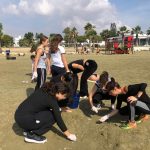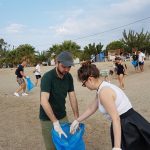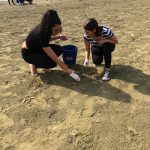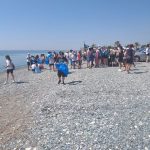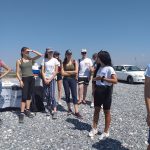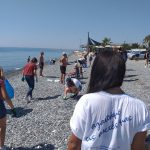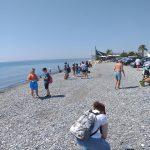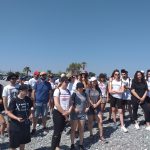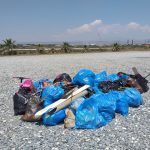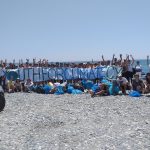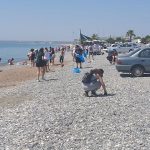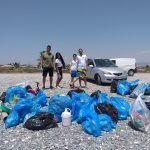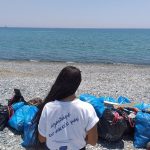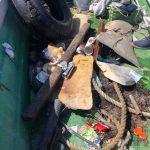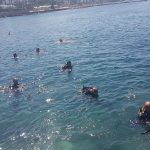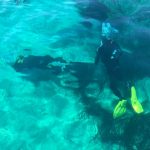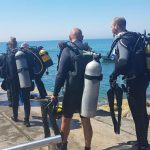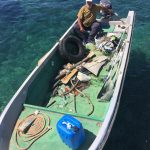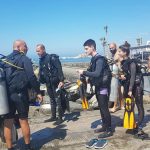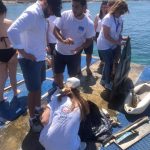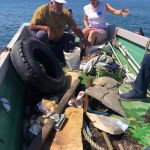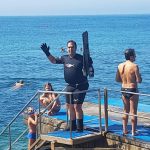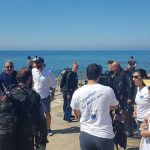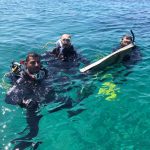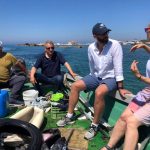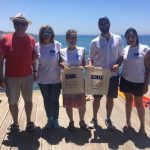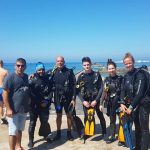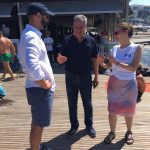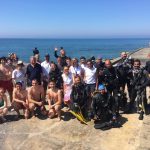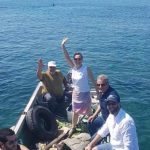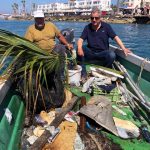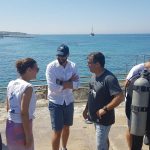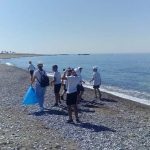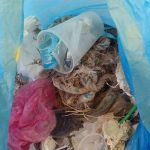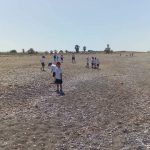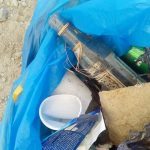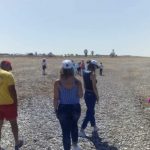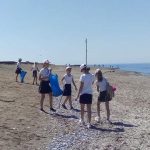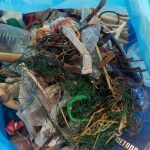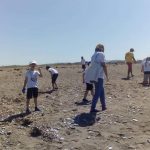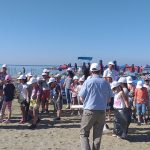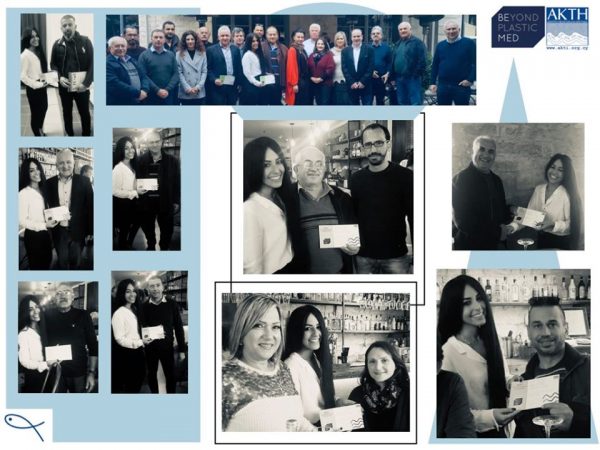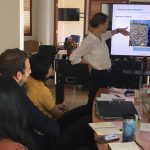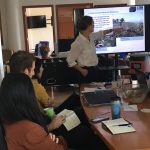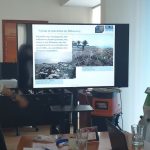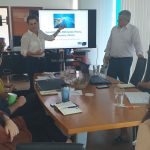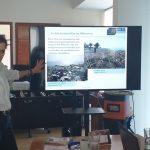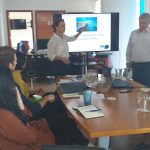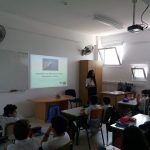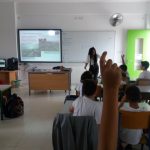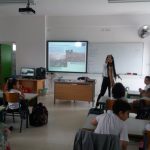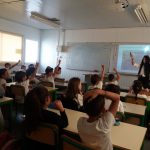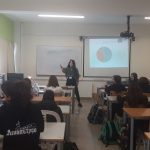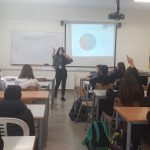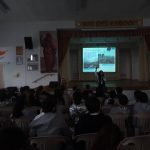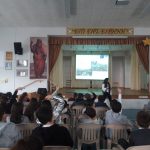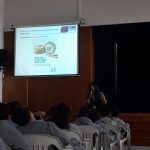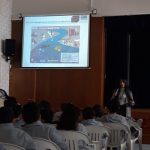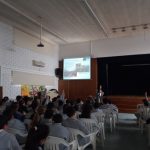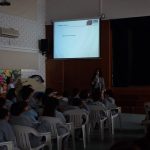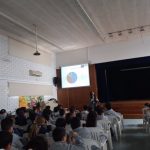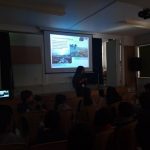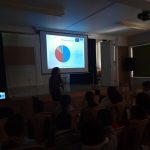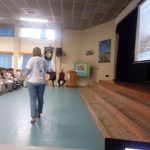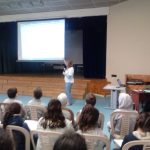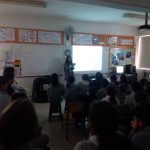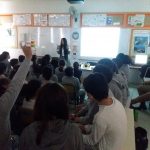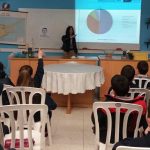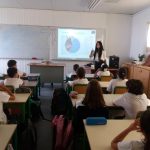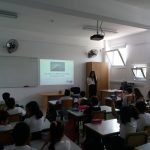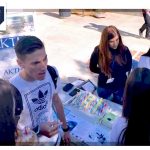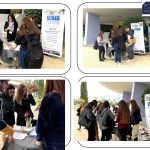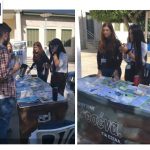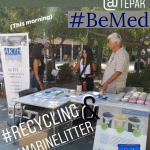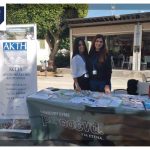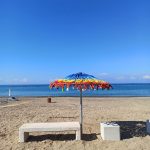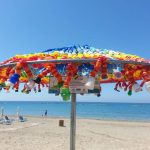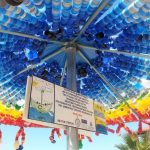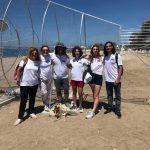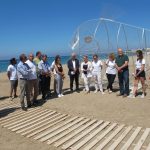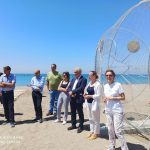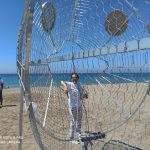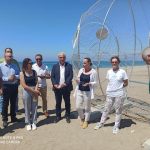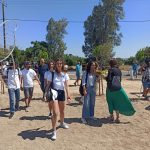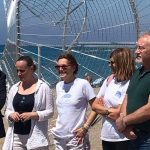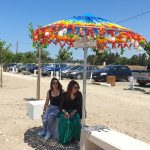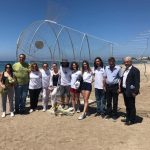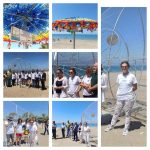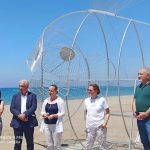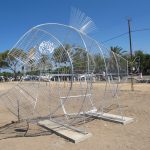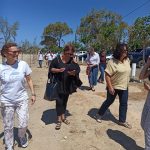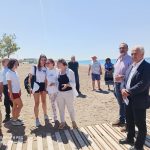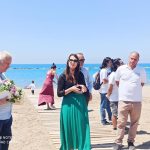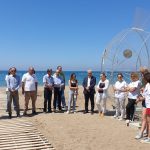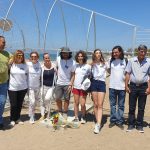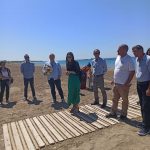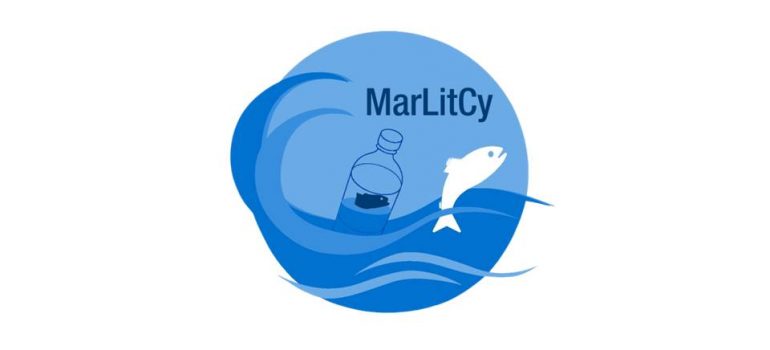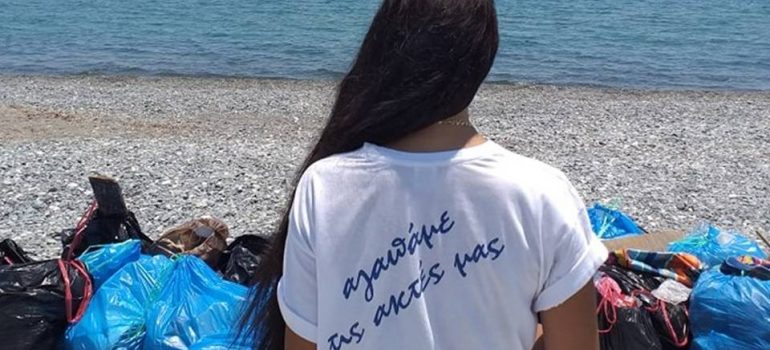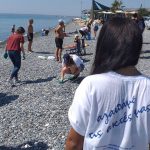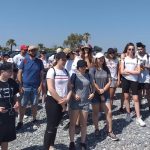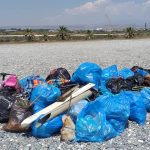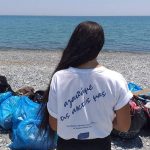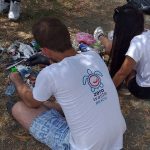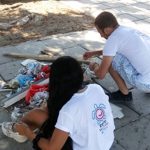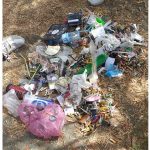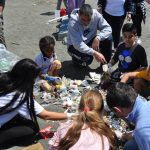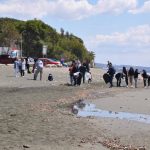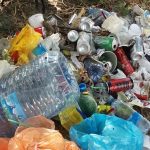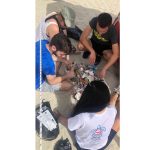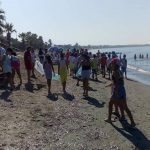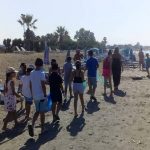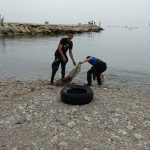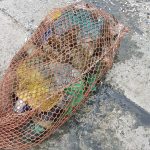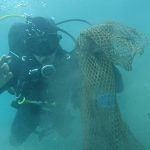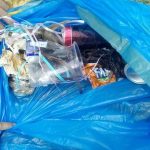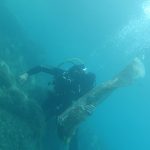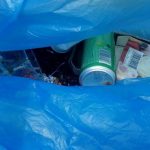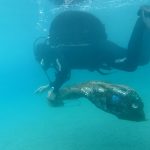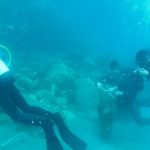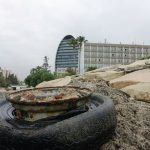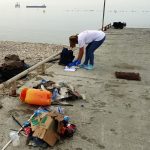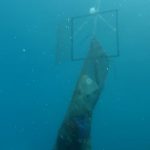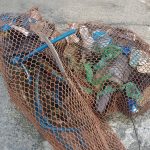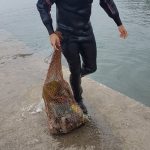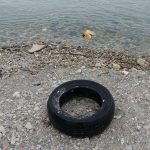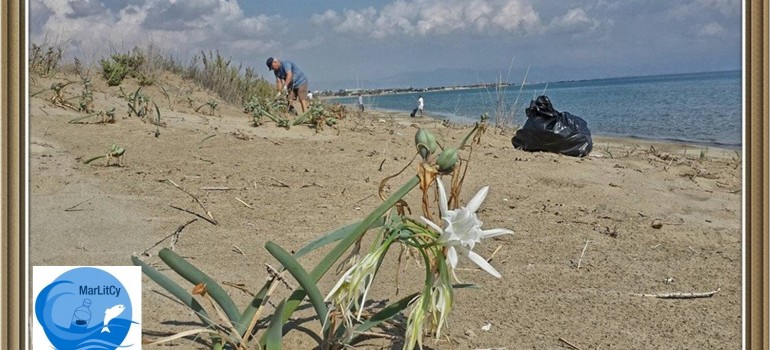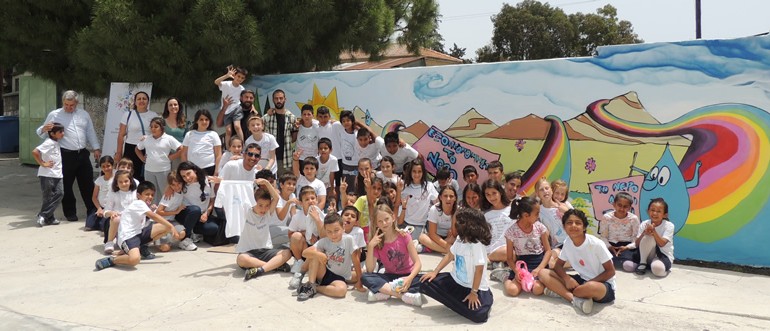Environmental Education and Vocational Training
Sincerely, Food Cyprus
Environmental Education and Vocational TrainingOct 18th, 20190 comments
Tackling the Universal Problem of Food Waste
The Cypriot production of household waste per capita is among the highest in Europe. According to the Statistical Services of the Republic of Cyprus in 2017 the waste generation reached 636 kg per capita, placing us second only to Denmark which generates 781 kg. Overall European Union averages to 486 kg per capita, a third of which (i.e. 88 million tons) is Food Waste. This also means that one third of food produced for human consumption in the world is lost or wasted, while one out of nine people globally is undernourished! (details and references can be found in the notebook and booklet attached below as pdf)
Sincerely Food, Cyprus, is an eight-month long, bi-communal project which is EU-funded under ‘Global learning approach on food waste in non-formal education’ (Project No. CSO-LA/2017/388- 342). It aims to utilise the engaging material developed by ‘Sincerely, Food’, adapt it to the Cypriot reality, disseminate it and raise awareness about food waste to as wide an audience as possible.
Reasons for the importance of ‘Sincerely, Food Cyprus’:
1. It takes a lot of time, human work and resources to produce food.
2. More than a half of food waste EU-wide is generated in homes.
3. Consumers have a big role to play in tackling food waste.
4. Tropical forests are being cleared to produce wasted
5. Food waste contributes to the global warming which causes extinction of animals and plants.
6. It’s easy to avoid food waste by planning your food needs.
7. Food will stay fresh much longer if we store it correctly.
8. Reducing food waste means saving money, resources, and our Planet.
Main Project Activities:
1.”Food for Peace” campaign: A bi-communal action which will focus on the culinary students of two Universities.
2.Presentations at schools to create awareness.
3.Door-to-Door Awareness Raising in two Municipalities.
4.Cooking Competition focusing on reducing food waste during the preparation process.
The focus will be on those target groups that have the greatest potential to make a difference in the amount of food waste that is being created: urban households, domestic workers from third countries, culinary students and children. A decrease in the food waste will contribute to meeting the following UN Sustainable Development Goals:
AKTI supports the Sustainable Development Goals
Urban Households amount to more than half of the food waste- other sources of food waste include retail and wholesales, production, processing. Thus, they are our main target group and most of our activities will directly or indirectly lead to a creation of their awareness. One of the actions will be a Door-to-door Awareness Raising in two Municipalities, one in the north part of Cyprus and one in the south part.
University culinary students, children and youth are particularly important, since environmental awareness and consciousness are formed from an early age. The project will therefore encourage children and youth to become involved in the reduction of food waste in households. Through the involvement of university culinary students, we hope to develop a more considerate and environmental culture to could be adopted by the future cooking professionals, cooks and chefs. Project activities with these target groups in mind include Interactive Presentations for awareness raising and promotion of best practices in schools and the “Food 4 Peace” bi-communal campaign which will reach two Universities, one in the northern part and one in the southern part of Cyprus.
Domestic Workers are the ones managing the cooking and consumption in many of the households in Cyprus, a fact that makes them a very important contributing factor on Food Waste. Informational material will be translated in Filipino as well, the language of the majority of domestic workers in Cyprus. Furthermore, the closing event will be a Cooking Competition in which one of the criteria will be Zero Waste. Such a scheme is also promoting the integration of migrants in the Cyprus community.
Guides:
Little Informational Booklet – English
Little Informational Booklet – Greek
Little Informational Booklet – Turkish
Little Informational Booklet – Filipino
 This website was created and maintained with the financial support of the European Union. Its contents are the sole responsibility of AKTI Project and Research Centre and do not necessarily reflect the views of the European Union.
This website was created and maintained with the financial support of the European Union. Its contents are the sole responsibility of AKTI Project and Research Centre and do not necessarily reflect the views of the European Union.
BeMed: The Cyprus Responsible Coastal Businesses Network against Single-Use Plastics
Environmental Education and Vocational Training Public Outreach and AdvocacySep 29th, 20190 comments
Marine litter is an environmental, economic as well as human health problem with no simple solution. It poses a global, complex and multi-dimensional challenge with significant implications for the marine and coastal environment and human activities all over the world. Single-use plastic products constitute more than 70% of all marine litter items. The European Commission in May, 2018 proposed new EU-wide rules that target to reduce the ten most common single-use plastic products found on Europe’s coastal areas and seas.
This year-long project funded by the Beyond Plastic Med Foundation aims to raise awareness on the impact of single-use plastics on the environment and consequently on human health and provide practical solutions to the problem targeting key stakeholders of the Cypriot society, specifically coastal businesses.
📌The specific OBJECTIVES OF THE PROJECT are:
1️⃣. Awareness-raising of key stakeholders who contribute to, are affected by and are responsible for taking decisions regarding the usage of single-use plastics, particularly coastal businesses and local authorities, as well as the general public. Promote the need to reduce the use of single-use plastics, presenting their detrimental effects on the marine environment and offering a solution oriented campaign (as presented in following points (2) and (3).
2️⃣. Collection and dissemination of best practices for the reduction of single-use plastics through synergistic, novel and practical solutions to the problem. Collaboration of the key stakeholders will be encouraged and recorded.
3️⃣. Expansion of civic engagement through capacity building and skills development in conscious single-use plastic usage, in order to have a societal level change (i.e. coastal business owners, beachgoers, local authorities, students) in regards with the latest proposed EU Directive which aims to reduce marine litter.
📌 The six activities that were implemented over the duration of the project are:
1️⃣. Field trips for marine litter assessment and source identification were implemented, engaging coastal business owners, beachgoers and local communities. More specifically, AKTI implemented annual clean-ups on selected beaches with the collaboration of the Responsible Coastal Businesses, local authorities, schools, and volunteers. A total of 13 marine litter assessments were implemented: 12 beach clean-ups and 1 seabed clean-up, with the participation of almost 400 volunteers, including representatives of 10 local authorities.
AKTI is the national coordinator of the International Coastal Cleanup (ICC) of the Ocean Conservancy in Cyprus. Therefore, all the clean-ups were implemented using the International Coastal Cleanup Protocol. The data have been included in AKTI’s Regional Marine Litter Database and have also been submitted to the ICC. Over 18,000 litter items were collected, weighing more than 300 kilos.
📸🌊Some photos from the Beach and Seabed Cleanups, are available here:
2️⃣. A Guide that highlights the practices that can be applied by each stakeholder/target group in order to reduce the use of single-use plastics, has been developed, printed and distributed to all the Network Members as well as the coastal authorities we visited and informed about single use plastics. The Guide developed as part of this activity, aims to support businesses that are members of the Cypriot Responsible Coastal Business Network to implement practices that will minimize their consumption of single-use plastics, reduce the amount of litter that they produce, and thus contribute to the overall reduction of marine pollution. In so doing, the guide will help prepare coastal businesses for the Single-Use Plastics Directive of the European Union, which will come into force in 2021 and that will ban the use of the most common types of single-use plastics that end up in the marine environment. In summary, the guide seeks to fill a significant information and awareness gap by engaging key stakeholder groups and encouraging them to make a difference by incorporating more sustainable practices in their operations and thus contributing to the fight against plastic marine pollution.
200 copies of the Guide (100 copies in English and 100 copies in Greek) were produced and distributed to the Members of the Responsible Coastal Business Network, and other stakeholders
An electronic version of the Guide, is available here:
3️⃣. Strengthened and expanded the «Responsible Coastal Businesses Network» to 204 members, through the implementation of an Extensive Awareness-raising Campaign, which was implemented from May 2019 to September 2019 (in the tourist season) targeting all coastal businesses on the island. In these campaigns, AKTI’s staff liaised with business owners/managers/employees, informing them about marine litter (sources and impacts) as well as about the upcoming European legislation on single-use plastics and how it affects them, and assisting them in implementing practices that will minimize their plastic production and thus minimize the potential for marine plastic pollution from their operations and their customers’ activities. The aim of the Network is to engage businesses in the fight against marine litter, by (i) raising awareness about the problem,(ii) sharing some best practices and examples on how to actively minimize their contribution to the problem through the Guide which was developed during the implementation of the project and distributed to coastal businesses and (iii) getting them invested in the protection of their nearby coastal environment as a means of securing and expanding their business.
✅ The Responsible Coastal Businesses Network is visible on this Map.
The awareness raising campaign also included visits to 16 Coastal Authorities to inform them about the project and the serious problem of single-use plastics, their impact on the environment and consequently on human health.
The involvement of representatives from these local authorities in the awareness raising visits to coastal businesses, added particular clout to this activity.
4️⃣. School visits were implemented to inform and raise awareness in children and youth about the problem of single-use plastics and its negative impacts on the marine environment. Dr. Michael Loizidis and Dr. Xenia I. Loizidou prepared an interactive presentation on marine litter and provided a ‘train the trainers’ workshop to AKTI’s team so they could more effectively engage students of all ages during the school visits. Presentations were given at 10 schools reaching 1244 students.
During these interactive presentations, children learned about marine litter and specifically the impact of single-use plastics on the marine and coastal environment, through fun games and hands-on activities. The presentation finished with ways to reduce single-use plastic consumption and a call to action.
📸Some photos from the Training of the Trainers by Dr. Michael Loizides and Dr. Xenia Loizidou for the presentations in schools, are available here:
📸Some photos from the School Visits, are available here:
In the framework of the project, an additional action was implemented which was not included in the project’s specific goals. An awareness raising campaign on marine litter was implemented in 2 Cypriot Universities, twice at Cyprus University of Technology and once at University of Cyprus, to inform and raise awareness in 400 students about the problem of single-use plastics and its negative impacts on the marine environment.
📸Some photos from the Awareness Raising Campaign in Universities, are available here:
5️⃣. A highly publicised Final event was implemented at the end of the project. The ceremony took place on June 5, 2020 on the occasion of the World Environment Day, at the Municipal Beach of Geroskipou in Paphos. During the event, the overall results of the initiative were presented, and two artistic installations on marine litter were inaugurated. For the installations, AKTI Project and Research Centre collaborated with the Municipality of Geroskipou and the Second Primary School of Geroskipou, under the supervision of Ms Elena Daniel, a Cypriot artist.
The philosophy behind the installation, is the participation of visitors to the beach in the drastic reduction of the inappropriate disposal of plastic waste. The installations are a fun and interactive way to engage children and adults alike in the fight against plastic marine pollution, and act as a reminder that we must find ways to adopt a more environmentally friendly lifestyle. The event took place in the presence of the Environment Commissioner of Cyprus Mrs. Klelia Vassiliou and was attended by over 60 people (observing social distancing practices), including the Geroskipou Mayor Mr. Michael Pavlides and council members, the artist of the installation Ms. Elena Daniel, the Chairperson of Fishermen Federation in Paphos Mr. Leonidas Leonidou, Koloni Green Point manager Mr. Michael Michael, media (TV, radios and newspapers/e-media), Members of the Paphos Winter Swimmers Association, Members of Paphos Fishermen Association, representatives of the First and Second Primary School of Geroskipou, the Gymnasium of Agia Paraskevi and Giannaki Talioti High School in Geroskipou, Members of the Cultural Movement of Geroskipou and Local Community Members. The Ceremony was hugely successful with high Media coverage and publicity, and all stakeholders gave AKTI very positive feedback!
You can find below news clips, about the final event:
📸Some photos from the Final Event, are available here:
6️⃣. Extensive communication and dissemination activities took place over the duration of the project, and especially at times when important activities were implemented, e.g. the project launch, the participation of a representative of ΑΚΤΙ in the Ocean Week in Monaco, the cleanup events, the plastic free July campaign through marine litter facts and tips about single use plastics, the awareness raising campaign against single-use plastics in Universities, the interactive presentations in schools about marine litter and the final event.
Communication and dissemination activities were inclusive of all means and media (print, online, social etc) and included 30 publications about the project by third parties (national circulation newspaper articles, online news portals etc.), 1 TV and 4 Radio appearance, 37 Facebook posts by AKTI with a total reach of 63,529 and 1238 likes, 16 Instagram posts by AKTI with a total reach of 6,168 and 665 likes, 9 YouTube videos uploaded on AKTI’s channel.
MarLitCy: Marine Litter for Synergies, Capacity-building and Peacebuilding
Applied Environmental Research Environmental Education and Vocational Training ICZM Public Outreach and AdvocacySep 27th, 20190 comments
MarLitCy ‘Marine Litter for Synergies, Capacity-building and Peacebuilding’ building on the success of the MarLitCy (2014-2017), is a 36-month long, bi-communal project funded by the European Union, under the Civil Society in Action VI Programme.
MarLitCy aims to use the problem of marine litter as a tool for promoting dialogue and building closer relations between various unconventional target groups in Cyprus. This will be achieved through the implementation of activities that aim to raise awareness to key target groups and the general public about the issue of marine litter, and to promote the uptake of practices that aims to minimize the creation of marine litter across the island.
This project aims to enhance the role of civil society in active citizenship and decision making and to promote grassroots bi-communal collaboration, focusing on an environmental issue of European importance: marine litter. Marine litter is a powerful peace-building tool that has the potential to combat hatred and prejudices, while fostering cooperation among the two communities, providing a common win–win goal for all: keep our seas and coasts clean!
The project will contribute to the enhancement of the role of civil society in democracy, governance and peace building by using marine litter as a tool:
– To create an enabling environment to reduce marine litter
– To equip CSOs and other key stakeholders with the skills and tools to improve the marine environment
AKTI and the other project partners, Famagusta Walled City Association (MASDER), Enalia Physis Environmental Research Centre and Scuba Divers Association will focus their actions on the following target groups:
University students, children and youth are particularly important, since environmental awareness and consciousness are formed from an early age. The project will therefore encourage children and youth to become involved in voluntary activities, such as beach cleanups, promote active citizenship through the involvement of university students in the decision- making workshop, and support children and youth to express their views and opinions, share them with their peers and take action in identifying solutions through the joint competitions. The project places significant emphasis in creating opportunities for collaboration of children and youth across the divide, in a safe environment that will allow them to build group dynamics and work as a team, through the up- cycled competition, the field activities for university students and the joint final exhibition and event.
Coastal enterprises, the fishing industry and divers are directly exposed to the problem of marine litter. Marine litter can pose a threat to their business through the loss of tourism, loss of fish stocks, or risk to their customers. Project activities that involve the implementation of best practices, such as the “Responsible Coastal Businesses” campaign, the “Fishing for Litter” initiative and “Dive Against Debris”, have been developed with these target groups in mind. Not only will the involvement of coastal enterprises, fishermen and divers in these activities educate them, but it will also build capacity as they will learn new management tools and techniques and they will engage with their local community, other enterprises and university students, enhancing or even creating links between public-private sectors, youth and entrepreneurs.
Coastal local bodies will therefore have an important role to play in the implementation of these best practices and will thus become both project target groups and beneficiaries. The enhancement of collaboration between local bodies and coastal/marine entrepreneurs will lead to the mutual understanding of the issues faced and how to address them. Additionally, participation of local bodies in a workshop that will bring together key decision-makers and stakeholders to discuss the current problems and provide suggestions on the reform of relevant ‘legal text’ in the northern part of the island, to bring it in line with European Directives, will benefit local bodies both in terms of greater understanding and collaboration and in terms of cleaner and safer beaches/sea.
The activities of the project have been designed to meet the needs, capacity and expertise of each target group, and particularly the unconventional target groups such as coastal local bodies, coastal businesses and the fishing industry. Societal needs are coupled with environmental concerns, environmental education and entrepreneurial development, through an integrated set of activities that promote the benefits resulting from cooperation and synergies, while providing solutions and structures to support peace-building and reconciliation.
The proposed activities include:
1. The Responsible Coastal Businesses Campaign and associated Award scheme
2. The expansion of the Fishing for Litter initiative to more ports/harbors in Cyprus
3. A decision-making workshop in the northern part of Cyprus that will bring together local/central decision-makers and key stakeholders
4. Capacity building and educational activities targeting children, youth and university students, an extensive and innovative island-wide awareness campaign
5. Joint competitions and exhibitions on marine litter
The autonomous but inter-connected activities have been designed to engage these target groups in a way that develops synergies and networks.
Go Social: Supporting Employability through Social Entrepreneurship
Environmental Education and Vocational TrainingSep 24th, 20180 comments
AKTI participates as partner in the bi-communal project called ‘Go Social: Supporting Employability through Social Entrepreneurship’, August 2018.
MALIA – Marine Litter Awareness Through Learning by Doing Together
Environmental Education and Vocational TrainingApr 11th, 20180 comments
AKTI is a partner in the ‘MALIA’ project, ERASMUS+ KA2.
Beach and Seabed cleanup campaign 2019
Environmental Education and Vocational TrainingJul 3rd, 20170 comments
Η ΑΚΤΗ Κέντρο Μελετών και Έρευνας, πραγματοποίησε και φέτος το καλοκαίρι 2019, την καθιερωμένη εκστρατεία καθαρισμού ακτών και βυθών, σε συνεργασία με τις Τοπικές Αρχές, καταδυτικών κέντρων, σχολείων αλλά και εθελοντών!
- Οι συγκεκριμένοι καθαρισμοί ακτής είναι στοχευμένοι: διεξάγονται σε ακτές τουριστικές ή/και που έχουν Γαλάζια Σημαία και στόχο έχουν να αναδείξουν το πρόβλημα με τα μικρά σκουπίδια που κρύβονται στην άμμο, αφού οι παραλίες καθαριστούν από την οικεία Τοπική Αρχή. Σημαντική είναι και η συμβολή ομάδων εθελοντών!
- Οι καθαρισμοί ακτών, γίνονται κάθε χρόνο στις ίδιες ακτές, με συγκεκριμένη μέθοδο, έτσι ώστε τα στοιχεία που συλλέγονται να μπορούν να είναι συγκρίσιμα, και να οδηγούν σε συμπεράσματα που βοηθούν την παγκόσμια έρευνα. Για την καταγραφή των απορριμμάτων και το διαχωρισμό στις πηγές χρησιμοποιείται το Διεθνές Πρωτόκολλο Ocean Conservancy. Τα δεδομένα εισάγονται στην διεθνή βάση δεδομένων του Διεθνούς Οργανισμού Ocean Conservancy, ώστε να αποτελέσουν υλικό για σύγκριση δεδομένων και μελλοντική έρευνα.
Τα αποτελέσματα από τους φετινούς καθαρισμούς (μέχρι σήμερα), ήταν τα εξής:
- 26 καθαρισμοί ακτής
- 4 καθαρισμοί βυθού
- 360 εθελοντές (ενήλικες)
- 667 εθελοντές (παιδιά)
- ΣΥΝΟΛΟ: 25.700 τεμάχια σκουπιδιών τα οποία ζύγιζαν πάνω από 1130 kg!
Πιο συγκεκριμένα, τα ποσοστά που αντιστοιχούν σε κάθε κατηγορία ανά τεμάχιο σκουπιδιών, ήταν τα εξής:
- Γόπες από τσιγάρα: 50%
- Πλαστικά: 34%
- Χάρτινα: 7%
- Μεταλλικά: 4%
- Άλλα (μεικτά): 3%
- Απόβλητα υγιεινής και ιατρικά απόβλητα: 1%
- Γυάλινα: 1%
Η εκστρατεία καθαρισμού ακτών και βυθών θα συνεχιστεί τον Σεπτέμβρη!
Ευχαριστούμε όλους όσους συμμετείχαν στην προσπάθεια μας αυτή να καθαρίσουμε τις ακτές και τους βυθούς μας και να προστατέψουμε τη θαλάσσια ζωή που απειλείται!
Όσο πιο πολλοί συνειδητοποιημένοι και ευαισθητοποιημένοι πολίτες, τόσο λιγότερα σκουπίδια στις θάλασσες και τις ακτές μας!
ΟΛΟΙ ΜΑΖΙ ΓΙΑ ΤΗΝ ΚΑΤΑΠΟΛΕΜΗΣΗ ΤΗΣ ΘΑΛΑΣΣΙΑΣ ΡΥΠΑΝΣΗΣ!
#BeachandSeabedCleanupCampaign2019 #No_more_waste_on_the_beaches #Together_we_can
Fighting Plastic Pollution in Cyprus: The Responsible Beach Bars Initiative
Environmental Education and Vocational TrainingJul 3rd, 20170 comments
Project “Fighting plastic pollution in Cyprus: The Responsible Beach Bars Initiative” has been recognised as an innovative social initiative and therefore awarded by Beyond Plastic Med organisation (http://www.beyondplasticmed.org/).
This initiative aims to engage beach bars, snack shacks and beach restaurants (henceforth called beach bars), strewn around Cypriot beaches, to take ownership of ‘their’ stretch of beach in order to protect it and minimise the amount of marine litter, and especially plastic, left on it by their customers and in general beach goers.
The initiative, and particularly the outcomes of the Responsible Coastal Businesses award, was the focus of CYBC’s ‘Spiti sti Fisi’ (Home in Nature) show which aired in October 2018. You can see the entire broadcast (in Greek) below:
Timeline of Project Activities
The Initiative was launched on 28 June 2017 in Paphos, in the presence of His Excellency the Spanish Ambassador in Cyprus, Mr Angel Lossada, and the Mayor of Yeroskipou. The launch event included a beach cleanup with the participation of students from Paphos Technical School and other volunteers, as well as informational campaign to the beach bars of the area.
The highlights from the Launch Event are presented in this short video:
Some photographs from the launch Event are available here.
The Event was also covered by CYBC news, and you can see the relevant Video here.
Project “Fighting plastic pollution in Cyprus: The Responsible Beach Bars Initiative” will achieve its aims through six interrelated activities, which are presented below.
(1) Organisation and implementation of a workshop bringing together stakeholders from around the island to record their opinions and views with regards to plastic waste, to identify the problems they face with regards to its management and to pinpoint easy to implement and effective solutions for its management.
Three workshops were organised within the framework of the project: one with the local authorities responsible for Blue Flag beaches in Cyprus, one in Paphos with key stakeholders and one in Nicosia with the collaboration of the Spanish, Italian and Portuguese embassies on the island.
(2) Development of a concise but comprehensive guide for beach bars outlining the practices that they can implement to minimise plastic waste;
Guide for Responsible Beach Bars
(3) Awareness-raising campaign in the summer of 2017 targeting all beach bars on the island, where the Guide and a Decalogue of Good Practice will be disseminated.
The awareness-raising campaign involved visiting beach bars around the island, sharing information about marine litter and encouraging them to become members of the Responsible Beach Bars Network, by adhering to the Decalogue of Good Practice (Decalogo EN_F Decalogo GR_F).
The Responsible Beach Bars Network Members are visible on this Map.
Selected photos from the Beach Bar Visits are available here.
(4) Launch a competition for sustainable practices implemented by beach bars around Cyprus.
The competition was launched in March 2018, in collaboration with the Pancyprian Association of Entertainment Venue Owners (PASIKA). The deadline for the competition was the 31 March 2018.
All the competition documents can be found here (in Greek):
(5) Organise an awards ceremony for the winning beach bars.
The Awards Ceremony, which took place on 24 April 2018 on board the vessel M/V DOREMI, was a great success. In addition to the awarded beach bars, attendees included the Mayor of Larnaca, Mr Andreas Vyras, His Excellency the Ambassador of Spain, Mr Angel Lossada, Her Excellency the Ambassador of the Kingdom of the Netherlands, Ms Nathalie Jaarsma, representatives from the British High Commission and other distinguished guests, including representatives of the Cyprus Association of Recreation Venue Owners.
There was extensive coverage of the ceremony in local media (both online and print), including CYBC’s morning news broadcast (click here to view the broadcast clip).
AKTI developed the following highlights video of the award ceremony:
Beat the Microbead
Environmental Education and Vocational TrainingDec 12th, 20160 comments
Beat the Microbead: A worldwide campaign to ban plastic microbeads
Beat the Microbead is an international campaign supported by AKTI Project and Research Centre along with numerous NGOs worldwide against microbeads used in cosmetics.
Microbeads and Pollution
Microbeads are tiny particles of plastic that have been added to possibly thousands of personal care products sold around the world. These microbeads, hardly visible to the naked eye, flow straight from the bathroom drain into the sewer system. Wastewater treatment plants are not designed to filter out microbeads and that is the main reason why ultimately, they contribute to the Plastic Soup swirling around the world’s oceans. Sea creatures absorb or eat microbeads. These microbeads are passed along the marine food chain. Since humans are ultimately at the top of this food chain, it is likely that we are also absorbing microbeads from the food we eat. Microbeads are not biodegradable and once they enter the marine environment, they are impossible to remove.
About the campaign
The campaign aims to prevent manufacturers and retailers from using and selling products containing microbeads, and asks governments to ban their use in cosmetics. It was launched in 2012 and it is currently supported by 86 NGOs from 37 countries and 446 brands from 117 different manufacturers. This positive response shows that more and more of these microbeads are being removed from personal care products and replaced by natural alternatives. It is still a far cry to say that all personal care products are free from plastic microbeads though.
In October 2013, an internationally functional, smartphone application and supporting online platform (www.beatthemicrobead.org) were launched to support the campaign. The Beat the Microbead app makes it easy to check whether a product contains plastic.
For more information, click here.
MarLitCy: Marine Litter – Together for Clean Coasts!
Environmental Education and Vocational Training ICZM Public Outreach and AdvocacyNov 21st, 20140 comments
MarLitCy is a 28 month long project, funded by EuropeAid Programme.
INTERACT: Inclusion Through Environmental Activities
Environmental Education and Vocational Training Public Outreach and AdvocacyJul 6th, 20140 comments
The EU funded project ‘INTERACT’, focuses on social inclusion through environmental activities. Continue Reading
Archives



